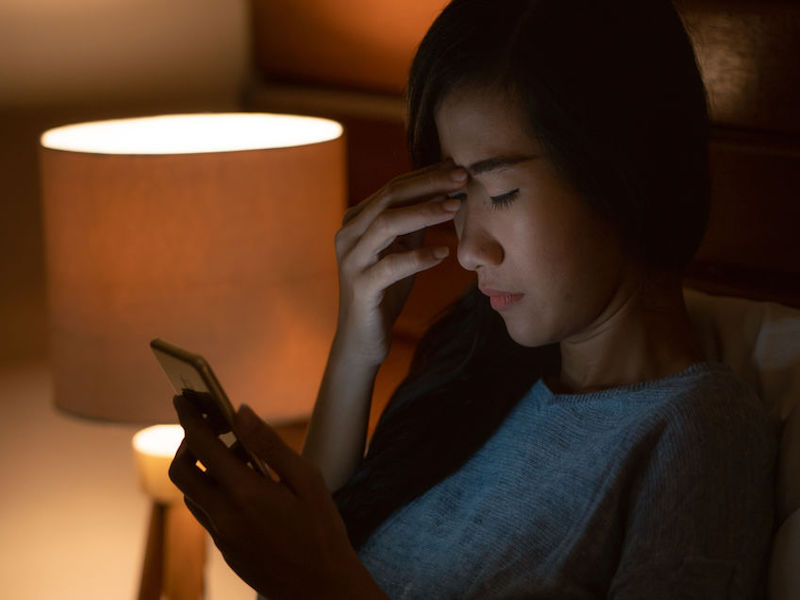

Internet-based cognitive behavioural therapy is reaching pockets of the population that had never previously accessed mental-health care and achieving clinical improvement for users, said Adam Kelly, chief commercial officer at MindBeacon Group, during Benefits Canada’s 2020 Mental Health Summit.
iCBT, which is delivered asynchronously either through guided text conversations with a trained psychologist or social worker or self-guided by the user, has been touted as an effective form of treatment for chronic mental-health conditions such as depression and anxiety and is less expensive than traditional talk therapy.
“There’s been a ton of validation externally . . . to suggest that iCBT, when delivered in the guided experience, can have the same, if not better, results than in-person therapy while removing many of the barriers.”
Read: A look at how internet-based CBT programs are evolving
The barriers to accessing mental-health programs are myriad, he noted, including difficulty with navigating them, a lack of confidence in their effectiveness, costliness, long wait times and difficulty of keeping appointments, as well as new pandemic-specific issues such as the closure of therapists’ offices.
Looking at MindBeacon’s user data, Kelly said almost half (48 per cent) of the company’s iCBT users had never reached out for help for a mental-health condition before. The other half (52 per cent) reportedly used other treatment strategies, whether medication or in-person therapy, and were trying iCBT as an alternative.
Over the past year, 80 per cent of people who accessed iCBT experienced a clinical improvement, with 67 per cent of them experiencing a 25 per cent reduction in symptoms, said Kelly. “That’s not necessarily suggesting that these individuals are cured — you don’t cure depression or anxiety, you manage the condition, especially with chronic illnesses. And we’re in the early days of measuring the sustainability of these results over the course of longitudinal studies.”
MindBeacon’s data has also debunked several myths about iCBT, he noted. The assumption that it won’t be well used because people would prefer to speak with someone about their mental-health issues has proven false. Almost half (48 per cent} of users said they’d prefer not to speak with a professional and that digital strategies better suit their needs.
Read: Work-focused CBT can help depressed employees remain on the job
It also debunked the theory that people may not be digitally savvy enough to access the service. A fifth (20 per cent) of users are 45 or older, with eight per cent of them over the age of 55. However, as expected, younger people were more likely to use iCBT, with 61 per cent of users between the ages of 25 and 44.
The assumption that iCBT is only effective for mild and moderate conditions has also proven to be “completely untrue,” said Kelly, as the largest percentage (30 per cent) of the people using MindBeacon’s services reported severe conditions. After treatment, just eight per cent of users reported severe conditions.
As well, he noted, users are generally accessing iCBT to deal with chronic conditions, though it can also be used as a preventative measure. “Data is showing that . . . the core conditions that are driving our disability [claims], that are driving our medication usage like depression and anxiety are responding really well to iCBT regardless of severity.”
Read: Analyzing the pros and cons of cognitive behavioural therapy
The pandemic has significantly changed the reasons that people are accessing the service. Before March 2020, 44 per cent of MindBeacon users were accessing it for depression, followed by generalized anxiety (34 per cent), post-traumatic stress disorder (nine per cent) social anxiety (seven per cent) and panic disorder (four per cent).
From March to the present, generalized anxiety (44 per cent) has been the most common condition people seek help for, followed by depression (33 per cent), PTSD (10 per cent), stress management (five per cent), social anxiety (four per cent) and insomnia (two per cent).
Read more coverage of the 2020 Mental Health Summit.
